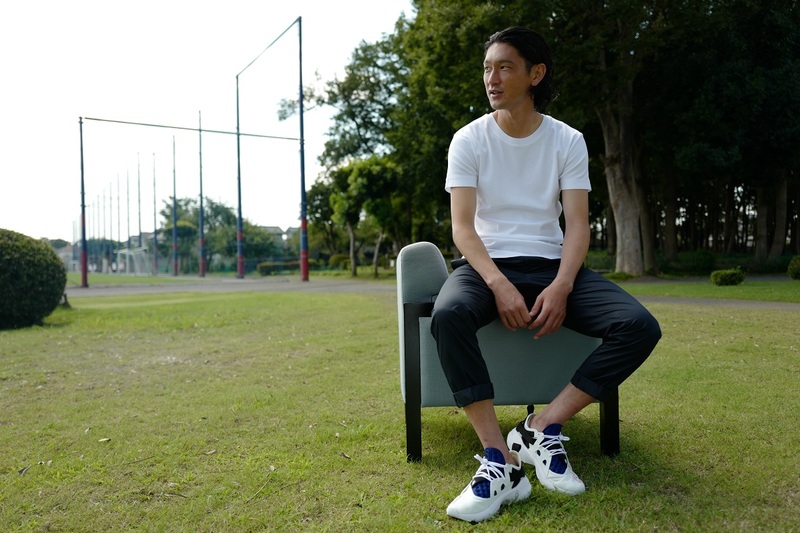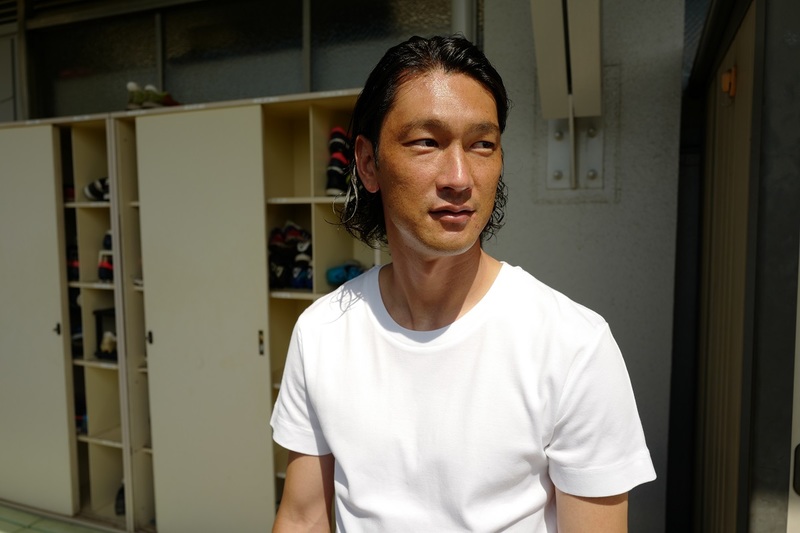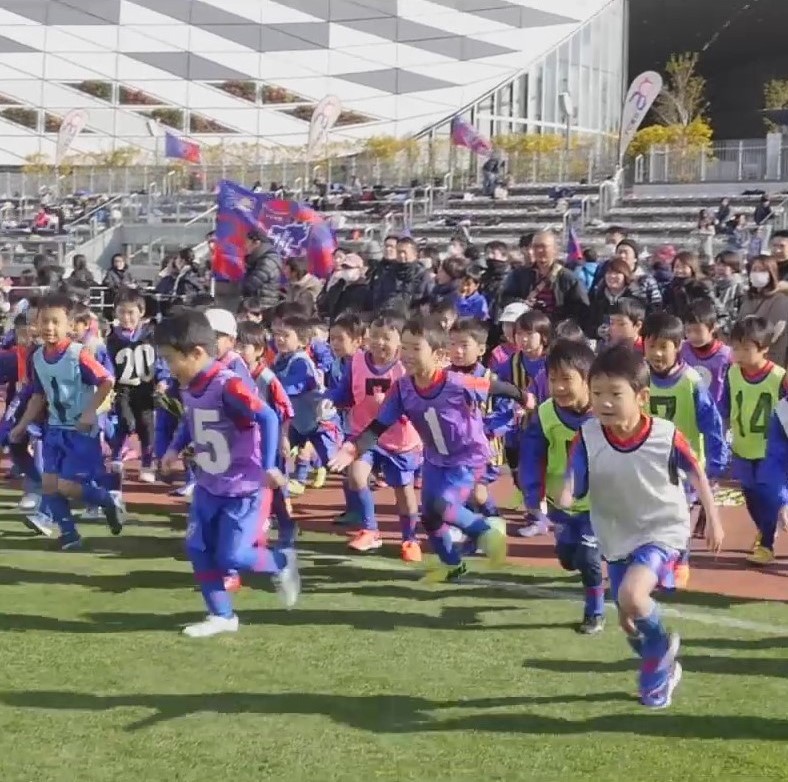"I love it so much that it's hopeless."
My senior reporter described Yojiro TAKAHAGI's play like this.
Even though I have such a fickle personality, my play never bores people.
Why? Maybe because his way of life is reflected in his play.
Endless pursuit without a correct answer.
I have enjoyed it more than anyone else.
Falling in love with soccer at some point, falling in love with someone.
Yojiro TAKAHAGI is right in the middle of that loop, now and forever.
Something I think for someone
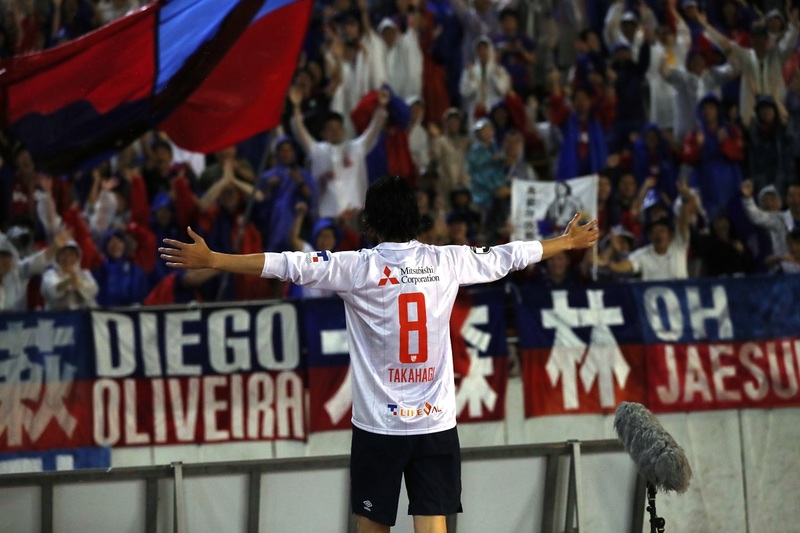
"Do not ask for whom the bell tolls
It tolls for thee."
This poem, which begins with "No man is an island" by the English poet John Donne, is used as an epigraph in Ernest Hemingway's novel "For Whom the Bell Tolls".
On March 11, 2011, the Japanese archipelago was struck by the Great East Japan Earthquake. It caused immense damage to the Tohoku region, and the tsunami that followed hit his hometown of Iwaki City in Fukushima Prefecture. While his parents were safe, his beloved grandmother is still missing to this day.
After the earthquake, I wondered if it was okay to continue playing soccer. However, my family and friends encouraged me to use soccer to give courage, and something changed.
In the following 12th season, he recorded 4 goals and 12 assists, and the team accumulated victories and points. On November 24, when Hiroshima won their first annual championship, there was Taka Hagi, who was praying with his hands together on the pitch of Hiroshima Big Arch, which was filled with joy.
"After the earthquake, I couldn't play soccer and various things happened to my family. It was the first time I wanted to play for someone else. When I think about it, I can't do things half-heartedly. Before that, I only cared about myself. I was focused on my own play and style. After the earthquake, I started to think about achieving good results for my family and delivering good news for Fukushima. I also started to express these thoughts in words. I think that's when I started to change little by little."
In my ever-changing football career, I have held onto unwavering thoughts. In an era where we spend more time looking at devices than making eye contact, I have learned to think of someone, sometimes visiting them and looking into their eyes, and expressing my feelings in various places. Along with this change in mindset, I have also grown as a football player. In the 12th season, I received my first J1 Best Eleven award, and the following year, I became the first player from Fukushima Prefecture to join the Japan national team.
Expanded Perspective on Overseas Challenges
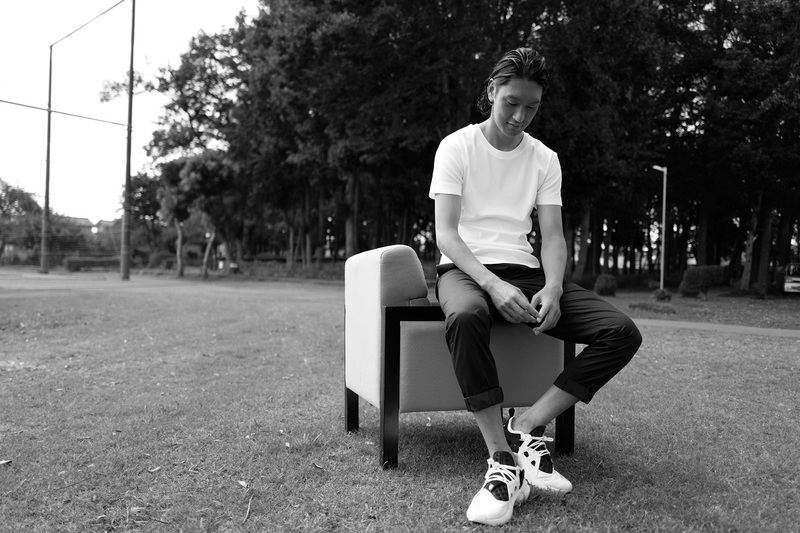
In January 2015, Takahagi decided to transfer overseas. He moved to the Western Sydney Wanderers in the Australian A-League and then, six months later, sought a place to shine in the South Korean K-League with FC Seoul.
"There were various overlapping timings. I made the decision considering the team situation and contract details of Hiroshima. I had been there for a long time and the atmosphere was great. At that time, I didn't think about it, but if I had stayed longer, I would have ended up as just an average player. I had always wanted to go overseas and I also felt a bit of a rut, so I thought it might be better to change my environment. Also, I knew that I could grow every time I changed my environment."
Starting over in a place where the language is not understood and everything is unfamiliar. There, I found new discoveries. Thinking "for someone else" also proved useful here.
"(Australia's) football is different from what I've been playing so far. The playing style and rhythm are different depending on the country's league. I think I was able to absorb things that are not present in the J-League. My experience in South Korea was also significant. By changing environments, I realized that I couldn't rely on just playing the way I like or am good at. In order to adapt to the environment, I had to fit in with the common sense there. My way of thinking changed, including the earthquake and transfer. It was a big realization that I have to take responsibility for the team."
Takahagi, who used to be an attacking player, moved down one position in Korea. He became an indispensable presence for the team, using his wide vision as a defensive midfielder. In his first year with FC Seoul, he was the driving force behind their victory in the Korean FA Cup, and in the following season, he contributed to the league championship as an immovable playmaker.
From the 17th season, I chose to completely transfer to Tokyo as a triumphant return to Japan. It was to savor the taste for the fourth time. Through my unwavering dedication to soccer, I have experienced the greatest moments. I still vividly remember the moment of winning for the first time in Hiroshima.
"I thought I would never be this excited as an adult, I was just so happy. I thought there wouldn't be anything else that could make me this happy as an adult."
It was because I felt the "possibility" of experiencing it in a new place called Tokyo. However, the expectations were not met. That year, we acquired players of Japan national team class one after another with Takahagi, but in the end, we finished in 13th place and struggled.
Sometimes Reward
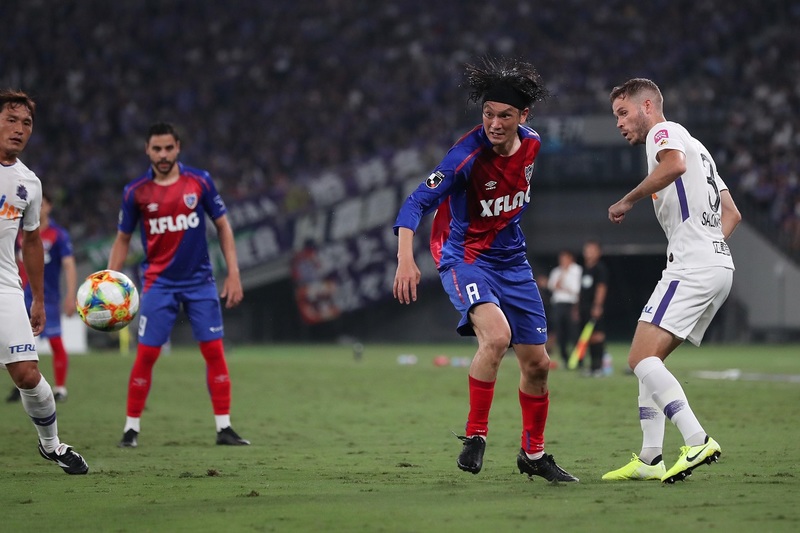
When asked about the difference from this season where they are competing for the championship, they replied, "Now we have confidence in the team's approach and way of fighting," and paused for a moment. With determination, they continued.
"Players stopped talking about the team, saying 'do this, do that'. No matter what coach, what coach, what style. I think it means 'first be quiet and do it'. When I transferred, I thought, 'the players are saying what they want'. I have also experienced relegation in Hiroshima in J2. At that time, I was young and not playing in the game, and I thought, 'why can't I play in the game?' and I thought I wanted to do this if I was used. Looking back now, when I came to Tokyo three years ago and when I fell to J2, the atmosphere was similar. Strong teams are in a certain position. (When Hiroshima won) they came up from J2 and were in a certain position and there were no waves. I think that if we become such a team, we can win when we have a good flow. I think that by being in the AFC Champions League (ACL) every year, we can get closer to winning."
As an experienced player with championship experience, I asked a straightforward question, "Can Tokyo win the championship?" And I received a seemingly appropriate answer.
"I can't say anything. Even if you say big things, reality is different. It's enough to just want to win. It's not about whether you can or can't. I think it's more important to have the desire to win. I may have experience winning, but it doesn't matter."
When I poked at the reason, it was still "for someone else".
"Even if you think about it, you can't win by playing soccer. Just because you have experience winning, doesn't mean you can win alone. My words won't change the team during the game. When we lose, we lose. When we win, we win. Isn't it better for the team to win when I'm not standing out? It's no good to rely on others. I rely on myself for things I can't do (laughs). But I do everything I can. I can't do more than what I can do. (Because it's a team) I ask for what I can do. If I can help with what I can do, I will do it for the team. I'm not the type to stand out, and there's no good in me standing out. When I'm on the field, I'm expected to score. But I do what I can in other areas, and scoring is like a bonus, like Glico. Sometimes there's a lucky shot, right? (laughs)"
"Not" instead of "to"
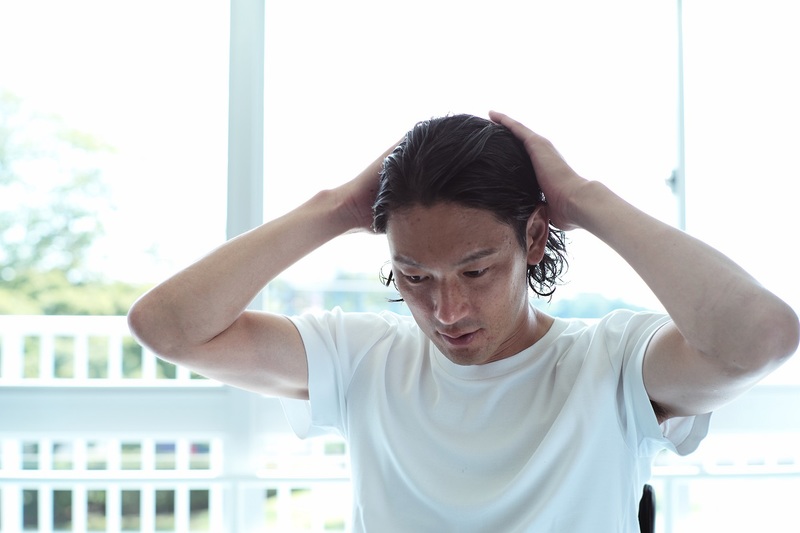
In September of this year, I visited Tomioka-cho, Fukushima Prefecture with my Tokyo teammates as part of our reconstruction support activities. We interacted with the children and inspected the current state of the region with the players. Before the earthquake, the population was about 15,000, but now it is only about 1,000. In the areas where it is difficult to return home, barricades are still set up around them.
"I thought about doing it for someone, since the earthquake. Since that day, I felt responsible for my words. So I don't want to say anything like winning or something appropriate. With each win, I want to deliver the sight of someone working hard for someone, for families affected by the disaster, and for the people of Fukushima."
In Tokyo, I have worn the number 8 on my back. When I knock it down, it also looks like a Möbius strip. The never-ending game of tag continues even now.
"ACL? I want to go. It may not be easy and it may not go well. But it will be a good experience. Plus, I think it will also benefit the league. I'm really looking forward to it."
Even at the age of 33, his passion for soccer has not changed one bit. Looking at his playing photos, I'm sure everyone would be surprised. Off the pitch, he may be so elegant, but in every photo, he is chasing the ball with an intense expression. He must still be as determined as ever.
If there is one thing that has changed, it is the addition of the feeling of "for someone else" to the empty space in his heart that he had reserved for "his own soccer". He says he doesn't want to waste anything, but he surely doesn't want to waste the efforts of players who share the same feeling of "for the team, for someone else". The photo captures this more than anything else.
For whom the bell tolls, do not ask for whom it tolls――. Yojiro TAKAHAGAGI always rings the bell for someone, with prayers.
◇FC Tokyo Players' Association's Disaster Recovery Support Activities
【INSIDE F.C.TOKYO】FC Tokyo Players' Association's Disaster Recovery Support Activities - Let's Do Our Best Fukushima! We Won't Lose to Tomioka!〜
◇Yojiro TAKAHAGI Profile
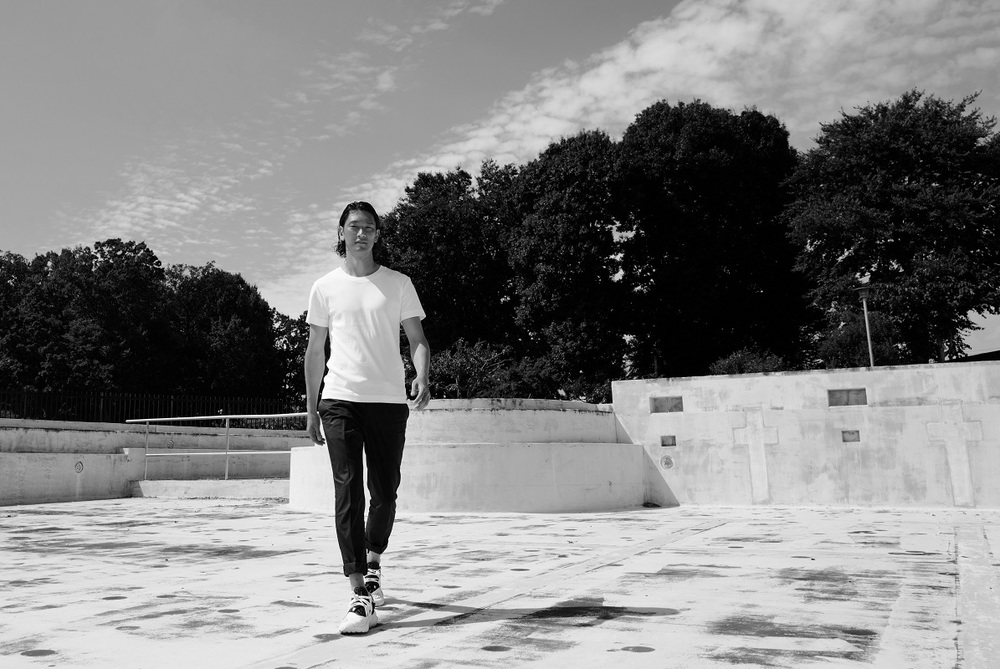
text by Kohei Baba
photo by Kenichi Arai,Masahito Sasaki
